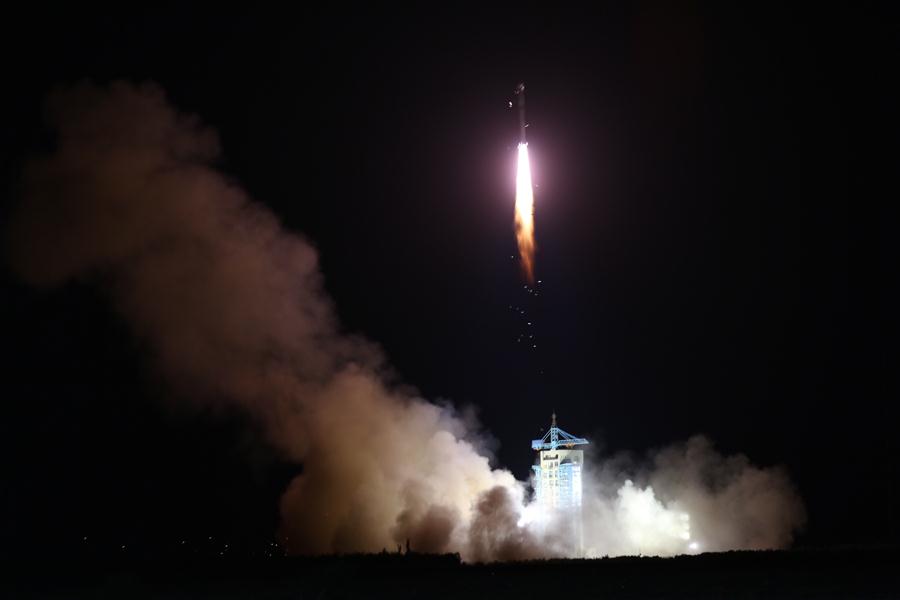
China launches the world's first quantum satellite on top of a Long March-2D rocket from the Jiuquan Satellite Launch Center in Jiuquan, northwest China's Gansu Province, Aug. 16, 2016. The world's first quantum communication satellite, which China is preparing to launch, has been given the moniker "Micius," after a fifth century B.C. Chinese scientist, the Chinese Academy of Sciences (CAS) announced Monday. (Xinhua/Jin Liwang)
BEIJING, Aug. 16 (Xinhua) -- China plans to send more quantum communication satellites into orbit after the successful launch of the Quantum Experiments at Space Scale (QUESS) satellite, according to the chief scientist of the project.
Early Tuesday morning, the world's first quantum satellite, nicknamed "Micius" after an ancient Chinese scientist, lifted off from a Long March 2-D rocket. After three months of in-orbit testing, the satellite is designed to start "hack-proof" quantum communications by transmitting uncrackable keys from space to the ground.
Quantum communication is ultra-secure as a quantum photon can neither be separated nor duplicated. Accordingly, it is impossible to wiretap, intercept or crack information it transmits.
"If the new satellite operates well, China will follow up with projects Micius-2 and Micius-3," said QUESS chief scientist Pan Jianwei.
China is striving to set up the first-ever global quantum communication network by around 2030, through linking a satellite constellation consisting of dozens of quantum satellites and ground-based quantum communication networks, said Pan.
Based on this network, China will be able to establish a highly secure quantum Internet, a quantum communication industry, and a new generation of information security systems, scientists say.
Given that QUESS is a low-orbit satellite with limited coverage, it can only be used for satellite to ground quantum communication during the night to avoid sunlight interference. More quantum satellites will be needed to realize highly efficient quantum communication on a worldwide scale, Pan said.
By the end of the year, China will complete and put into operation the world's first secure quantum communication network, the Beijing-Shanghai network.
The 2,000 km network will be used for secure data transmission in the fields of the military, finance and government affairs.
So far, several banks in China have been the first users of quantum encryption.
However, scientist say that it will take another a decade or more for quantum communication to reach individuals. This will involve intensive efforts updating Internet infrastructure and the setting of industry standards.
Meanwhile, Chinese scientists expect more uses for quantum technology in the future, including quantum computers, devices used for energy storage and transfer, as well as for ultra-precise physical and medical measurements.
The successful launch of QUESS marks China taking a lead in the fierce global competition in quantum technology.
This March, the EU announced its initiative on quantum technology with an investment of 1 billion euros (about 1.1 billion U.S. dollars), which is scheduled to launch in 2018.
Pan said that China will push forward international cooperation on quantum information technology research. The first project will test transcontinental quantum communication between China and Austria, he added.
Related:
China launches first-ever quantum communication satellite
JIUQUAN, Aug. 16 (Xinhua) -- China successfully launched the world's first quantum satellite from the Jiuquan Satellite Launch Center in northwestern Gobi Desert at 1:40 a.m. on Tuesday.
In a cloud of smoke, the satellite, Quantum Experiments at Space Scale (QUESS), roared into the dark sky on top of a Long March-2D rocket. Full story











